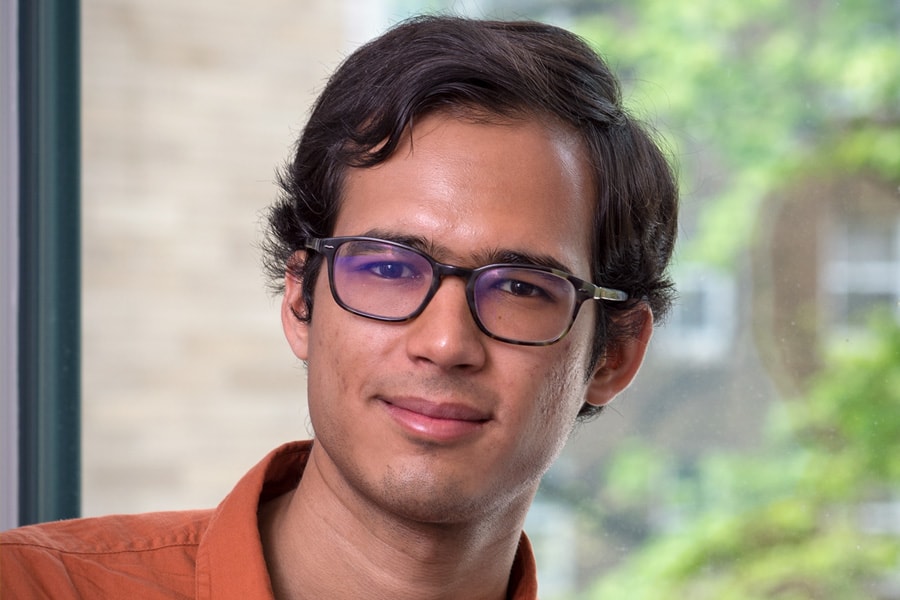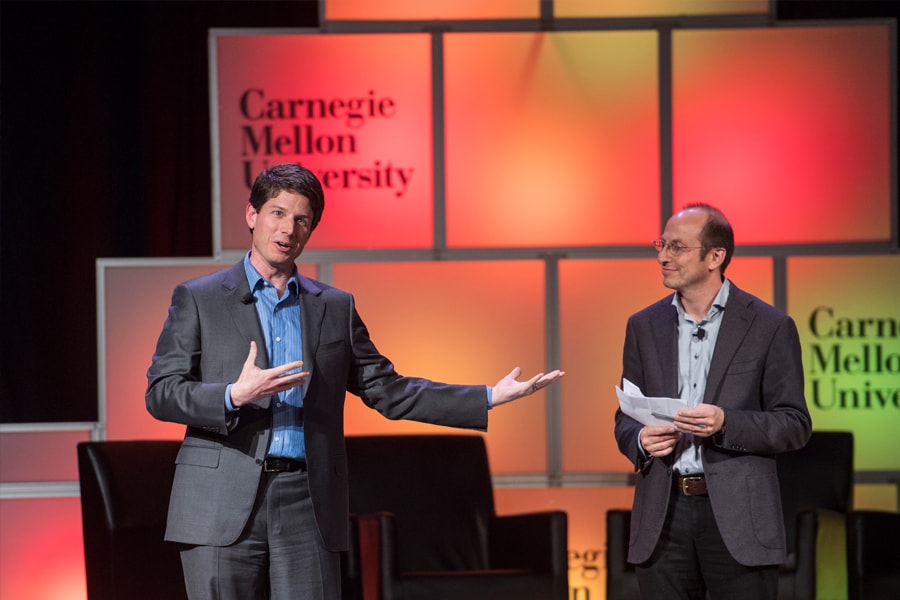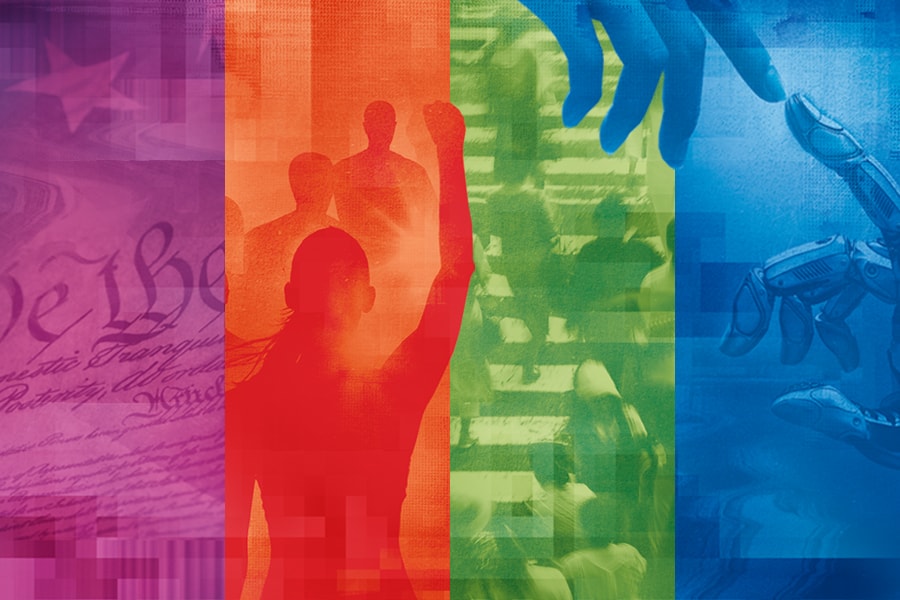
Nanavati Wins Inaugural K&L Gates Prize
He Is Committed To Developing Technology To Help the Underserved
Amal Nanavati, a double major in computer science and global studies in Carnegie Mellon University's Class of 2018, has received the inaugural K&L Gates Prize.
The $5,000 K&L Gates Prize, supported by the K&L Gates Endowment for Ethics and Computational Technologies, recognizes a graduating senior who has best inspired fellow students at the university to love learning through a combination of intellect, high scholarly achievement, engagement with others and character. The endowment, established by K&L Gates to help ensure Carnegie Mellon's leadership in examining the ethical and policy issues surrounding artificial intelligence and other emerging technologies, also supports the biennial Carnegie Mellon University-K&L Gates Conference on Ethics and AI; faculty chairs; Presidential Fellowships for doctoral students; and the K&L Gates Presidential Scholarship Endowed Fund to recognize undergraduate students' outstanding achievements and potential for further excellence.
Nanavati will be recognized during the School of Computer Science diploma ceremony this Sunday.
Nanavati, of Fremont, California, said growing up in Silicon Valley instilled in him the conviction that technology leads to solutions, which leads to human progress. He dreamed of joining a startup and building apps that change the world.
After his first year at CMU, he traveled to Bengaluru, India, as part of a team from TechBridgeWorld, then a Robotics Institute lab that developed technologies for underserved communities around the world. He and his fellow team members worked with schools for blind and deaf children, developing a device to teach students how to write in Braille, software to help teachers document their local sign language, and a collection of games to help deaf students understand and visualize their voices during speech therapy class.
"That 2015 trip to Bengaluru rattled my views about technology. I have abandoned my naive faith that 'technology leads to human progress' and am committed to utilizing technology, together with an understanding of social context, to assist the underserved," he added.
At CMU, he involved himself in research with Aaron Steinfeld, associate research professor of robotics, using robots to help blind travelers navigate indoor spaces. He co-founded and led Teknowledge, an educational outreach group that teaches computer science at under-resourced public schools in Pittsburgh. He returned to Bengaluru last year to enhance the speech-therapy games developed during his first visit.
"Overall, engaging in community service and outreach during my time at CMU taught me the importance of immersing myself in a community to discover their contexts, needs and perspectives," he said. "I have also learned that tackling any real-world problem requires interdisciplinary perspectives. Finally, outreach at CMU taught me that sustainability, both for technological tools and for organizations, is key. I intend to carry these lessons with me as I continue to pursue community-centric research and outreach in my future academic career."
Following graduation, Nanavati will conduct research in human-robot interaction under the supervision of Professor Takayuki Kanda at Kyoto University as part of the Fulbright U.S. Student Program. Nanavati is one of five CMU students and alumni who received Fulbright awards this year. The award, sponsored by the U.S. Department of State, offers new and recent graduates research, study and teaching opportunities in more than 140 countries.
Navanti's research will investigate how robots can learn to work and communicate with humans in smooth, natural ways by observing human-to-human interactions. He plans to continue human-robot interaction research as he pursues a Ph.D. at the University of Washington after his Fulbright experience.

